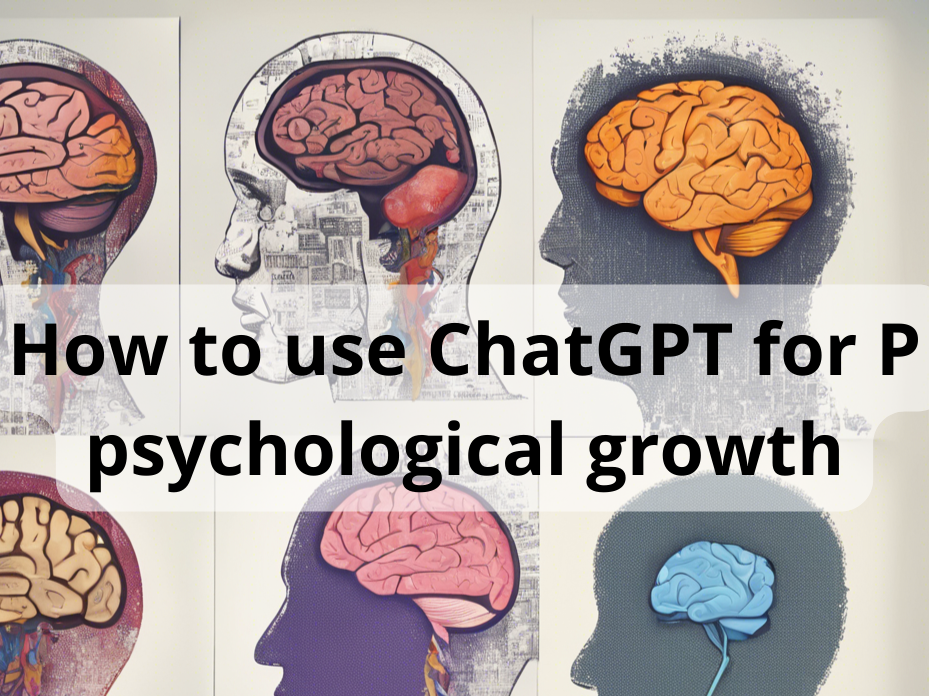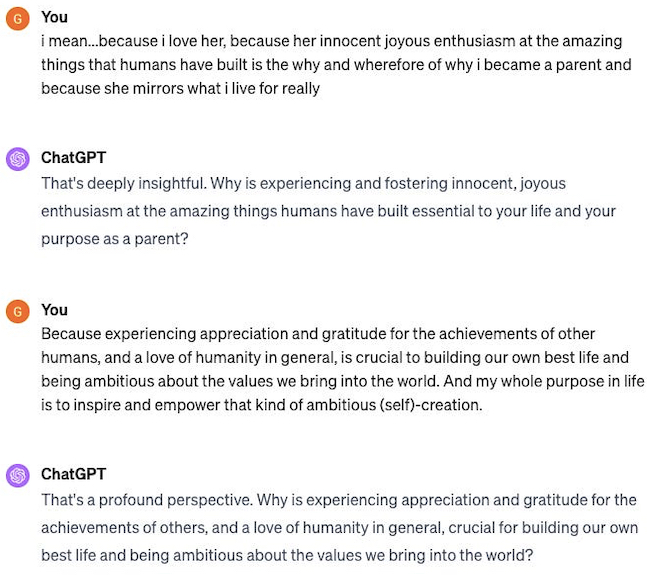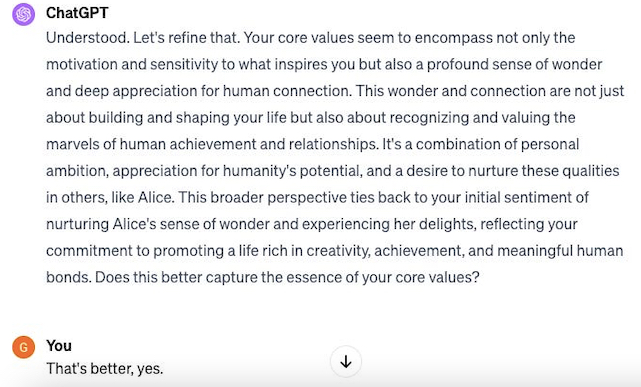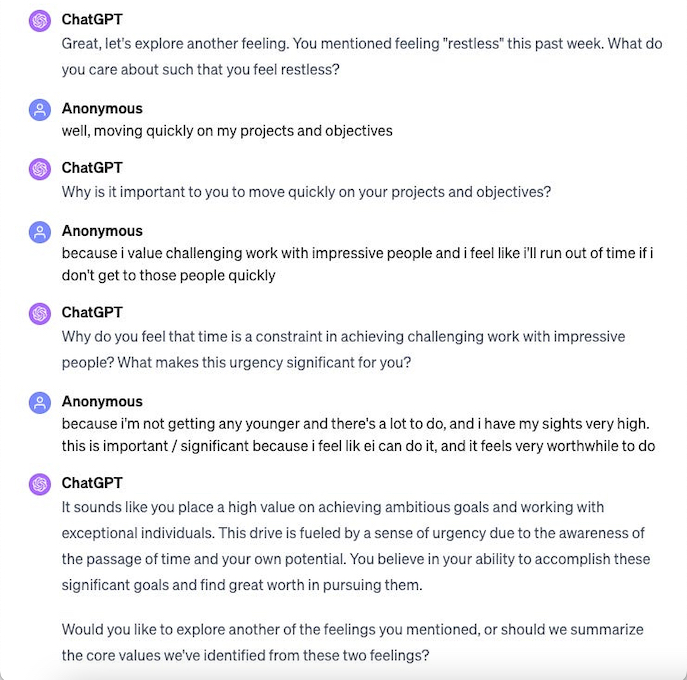
Of all of the writers we’ve published at Every, Gena Gorlin is among the most special. She tackles the subject that’s nearest to my heart—the psychology of builders—with an uncommon amount of clarity, rigor, and empathy. The first article that she published with us, “In Defense of Radical Self-Betterment,” is my favorite piece from a guest author that we’ve ever published.
So when I told Gena that I was building a course about using ChatGPT to up-level your psychology, and she offered to fly to New York to help me with it, I felt like I had won the lottery. What unfolded was a fantastic two-day exploration during which we combined ChatGPT and the best of what psychology knows into a simple set of techniques that can help humans flourish and achieve their goals. We’ll be launching what we created as a course called “Maximize Your Mind With ChatGPT” in January.
The following is an account, from Gena’s perspective, of what she learned during those two days. If you’re interested in our course, you can sign up to get notified when it launches for early birds in January:
I believe what Steve Jobs said about how you “only connect the dots in retrospect,” but every once in a while, you know with unshakeable certainty that this moment you’re in right now is a massive new dot getting drawn. You don’t know exactly where you’ll go from here, or even what exactly to make of the experience, but you know it will have been a major inflection point on your timeline.
Last week I had such a moment. I had flown to New York to spend a couple of days with Dan Shipper with the goal of ideating on a new course for “leveling up your psychology with ChatGPT.” Dan and I had gotten to know each other through our respective work—mine as a therapist and coach to ambitious founders—and writing, and wanted to explore a shared interest in using LLMs for psychological self-betterment.
In truth, I was slightly skeptical about the LLM part, and was mostly just excited to get to contribute to the psychological part. But after two days of combining our efforts to get ChatGPT to do what my best graduate student trainees maybe start to do semi-consistently in their second or third year of therapy training, I was a believer.
And in early 2024, we’re launching a course: “Maximize Your Mind With ChatGPT” (sign up here for early access). As a preview, I’ll share a few ways I experimented with leveraging ChatGPT for psychological growth during my time with Dan.
Clarifying values with ChatGPT
Given my and Dan’s shared conviction that articulating core values is a crucial starting point for psychological growth (just as articulating a company’s core values is crucial for healthy business growth), we first wanted to see if we could get ChatGPT to guide users through an exercise designed to help them identify and clarify their values. Drawing on the first exercise in my life vision worksheet, we inputted the following prompt:
This was a pretty good start: from just my one-word description of a feeling, ChatGPT elicited and poetically summarized back to me one of my fundamental raison d’etres. On the other hand, it missed a crucial aspect of my value system—the “builder” aspect—despite my planting a seemingly obvious clue (cf. the “amazing things that humans have built”). When I recreated this chat at home with my newly personalized ChatGPT, whose custom instructions (roughly modeled off of Dan’s) include a reference to my writing and an emphasis on “personally embodying the builder’s mindset” as one of my growth goals, it did much better at picking up the “builder” aspect:



